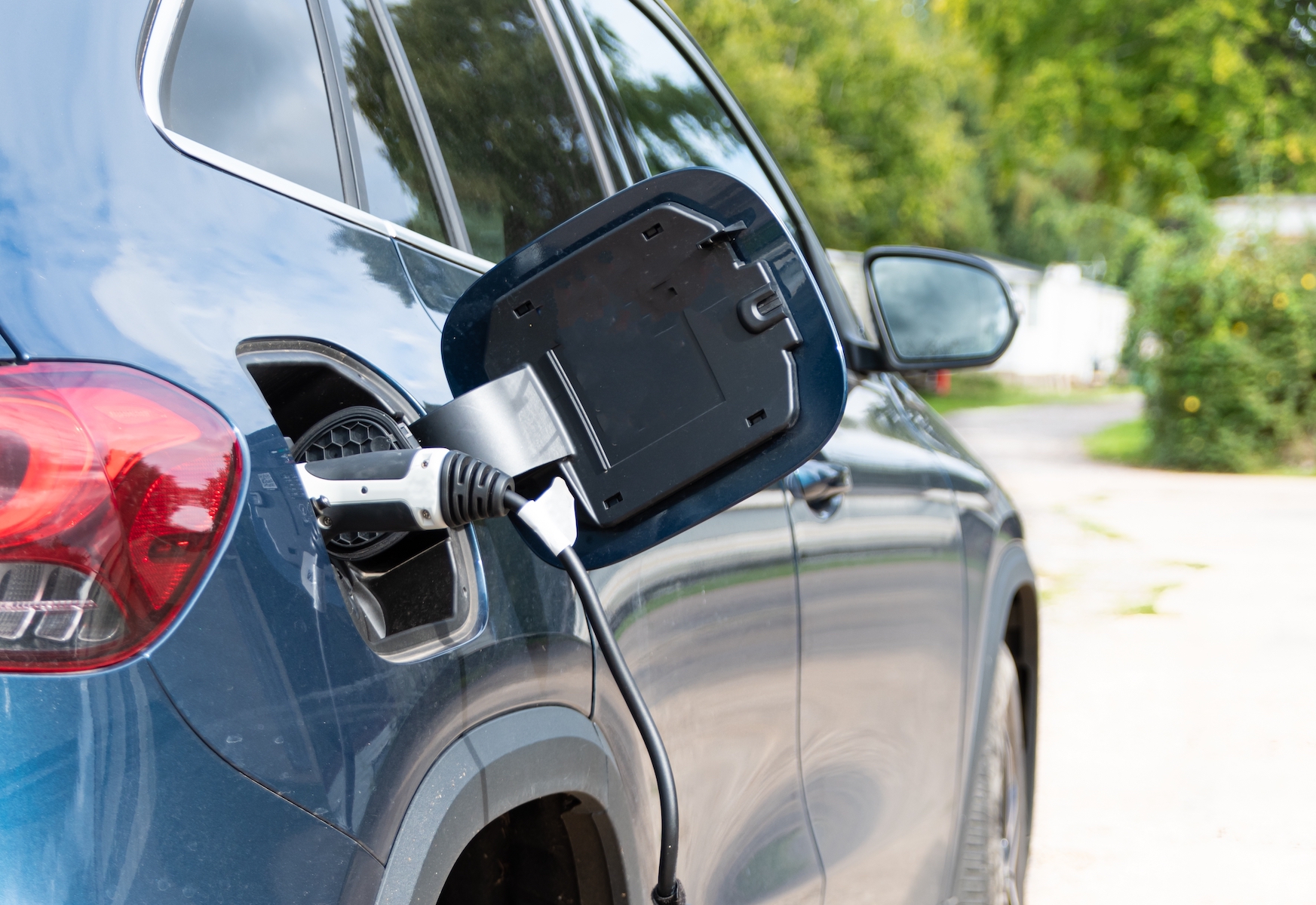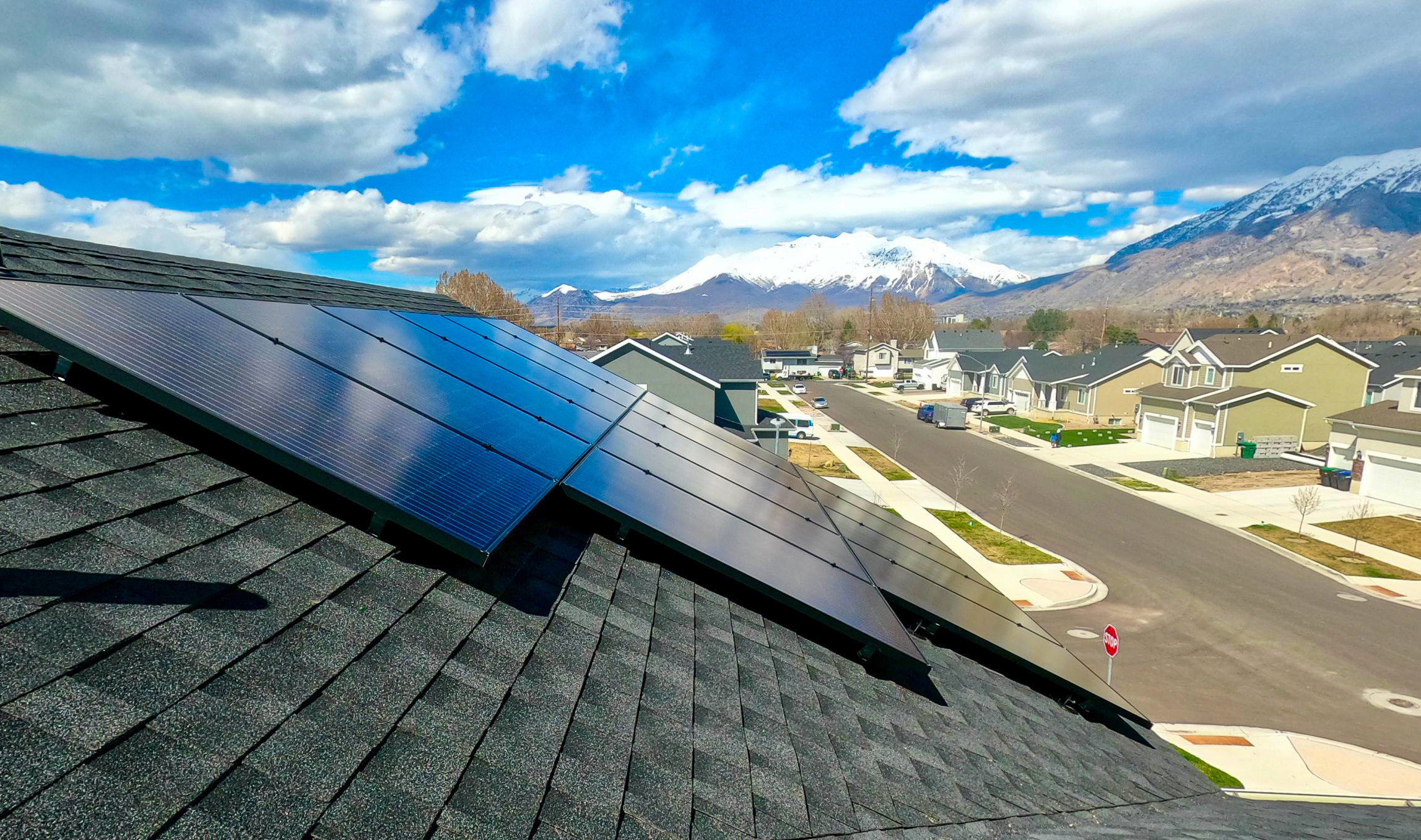
Colorado Springs Utilities Rates Are Increasing in 2026: What You Need to Know
CSU rates rise in 2026 with new Energy Wise time-of-use pricing. See what’s changing and how solar can help control energy costs. Learn more.

Electric vehicles (EVs) are taking over the world (or at least its major highways). There were more than 2.13 million EVs on the road in the US in 2021, and that number has only increased in the years since.
Even with the popularity increases EVs have seen in recent years, however, charging at home can be an adjustment, especially if you’re used to driving a gas car. Add rooftop solar panels into the mix, and things get even more complex.
In this guide, we break down everything you need to know about powering your EV with solar panels.
Solar EV charging is a pretty simple concept. Here’s a basic overview of how it works:
How easy it is to keep your EV charged with solar panels is another question. That depends on what type of charger you have, how many solar panels you install, and how often you drive.
The first question to consider is how many solar panels you should install to ensure consistent and reliable EV charging. The exact number is going to vary depending on how much you drive, how much sunlight your house gets, whether you want to charge your EV exclusively with solar power, and how much electricity you need to run the rest of your appliances and electronics. It’s safe to assume that you’ll need more solar panels for a house with an EV charger than a house without one, but it’s almost impossible to say exactly how many solar panels you’ll need without more information about your house, electricity consumption, and driving habits.
Solar Power Pros makes it easy to get a fast, free estimate. Just answer a few simple questions and we’ll use your answers, alongside satellite imagery of your roof, to deliver an estimate in seconds.
The biggest drawback to solar panels is that they only work when the sun is shining. So what happens if you want to charge your car overnight or when it’s cloudy out? That’s where solar battery storage comes in. A solar battery is a device that can store the excess electricity your solar panels generate during the day so you always have a backup power bank you can tap into when your solar panels are not producing electricity. With solar panels, a solar battery, and an EV charging station, you’ll have a full ecosystem that puts you in complete control of your own power.
If you’re one of the forward-thinkers driving an electric car (or thinking about buying one) solar EV charging is a no-brainer. It’s the cleanest and most affordable way to charge your EV so you can save money while doing your part for the planet.
Solar Power Pros is the trusted authority on whole-home solar ecosystems in Colorado with over 10 years of experience installing solar panels in Denver and throughout the Front Range. We install custom solar energy systems with fully integrated battery storage and EV chargers so you can get everything you need under one roof. We are a local, straightforward solar installer and will help you make the best decision for your home, no matter what.

CSU rates rise in 2026 with new Energy Wise time-of-use pricing. See what’s changing and how solar can help control energy costs. Learn more.

MVEA electric rates increase 8.5% in 2026. Learn what’s driving the hike, how it affects your utility bill, and how solar can help you stabilize costs.